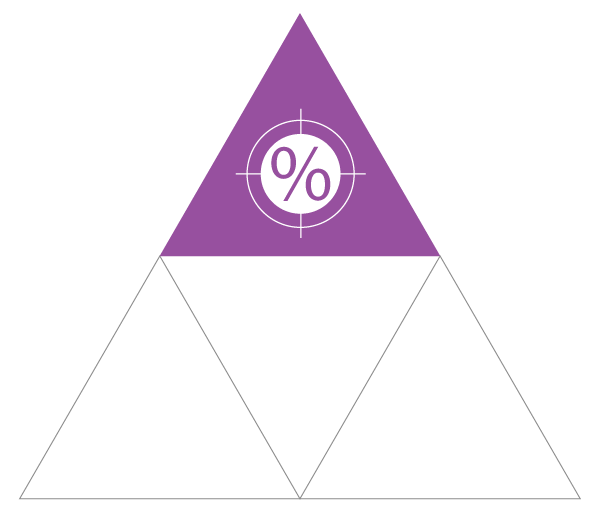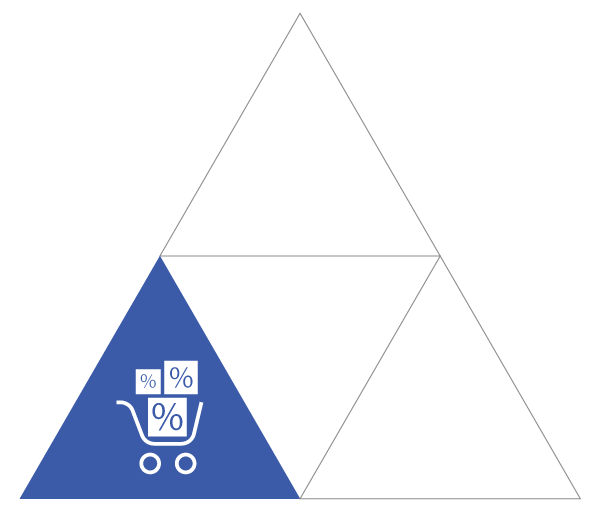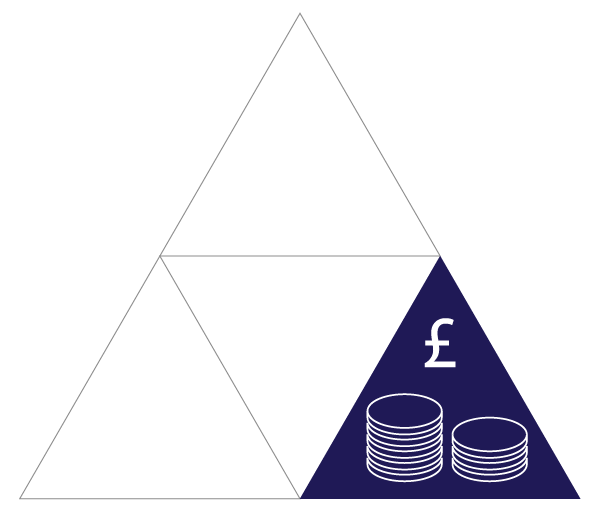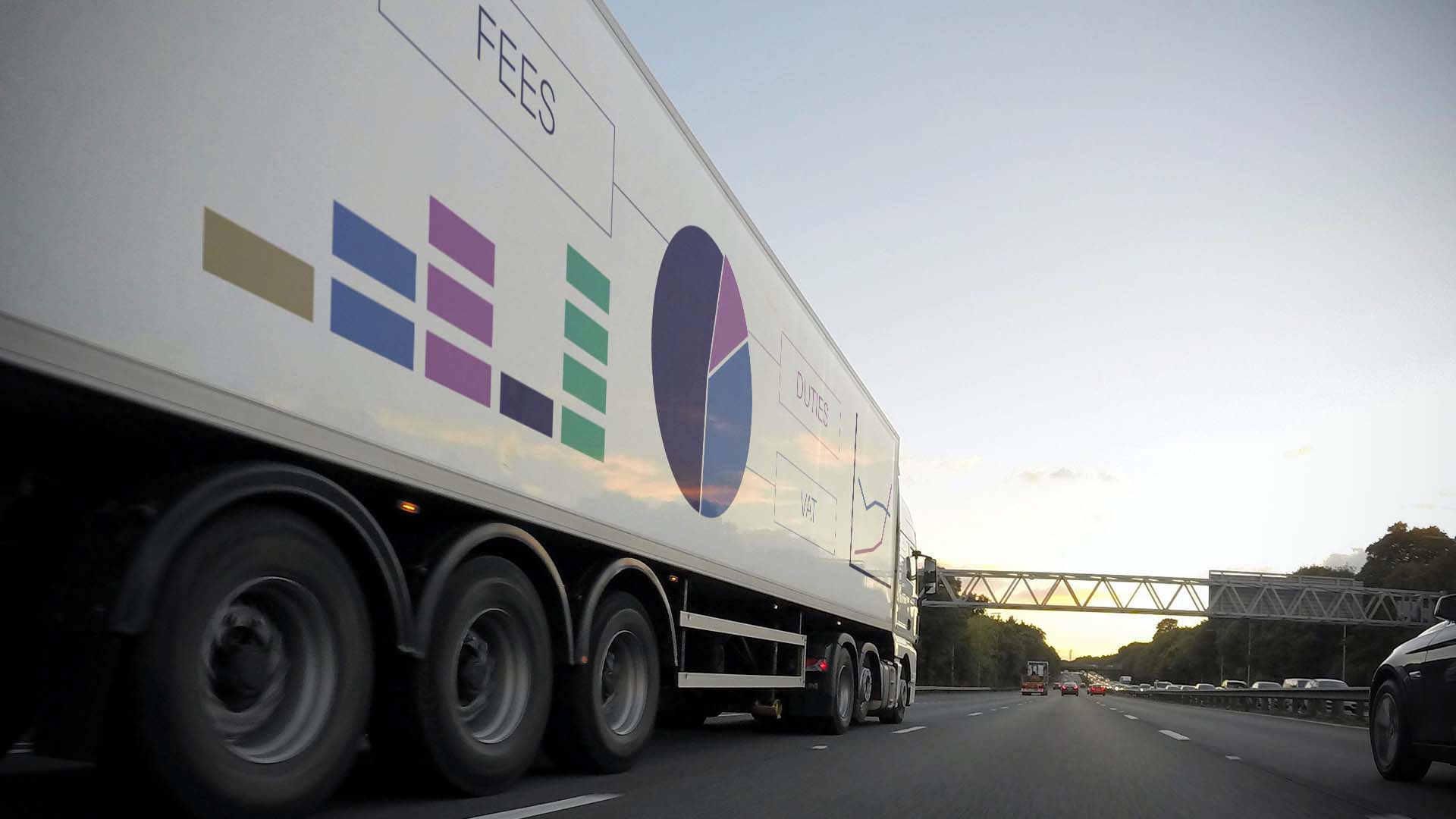Do you hear the phrase “free trade” and laugh out loud?
With a dizzying array of charges hitting importers and exporters it’s frequently difficult to understand those charges, let alone reduce or remove them.
International Trade Specialist, Frances Fawcett works with numerous importers and exporters and is frequently asked to help them both to understand, and to make sense of the various charges they face.
Seek first to understand
The American educator, author and businessman Stephen Covey taught us to “seek first to understand” in his excellent book: The 7 Habits of Highly Effective People. This is in the context of understanding the other person’s point of view in effective communications. The phrase is also critical here. The fees that you pay to import and export goods are made up of a triad of elements covering duty, import VAT and fees from transporters and customs agents. It is essential to break these down and understand them before you can seek strategies to reduce or remove them.
By way of example, I worked with a business recently facing crippling additional charges that, in extreme cases, were close to matching the value of the goods. They had started looking at complex duty relief schemes in an urgent attempt to reduce costs. Yet a detailed analysis of the transporter invoices revealed that no duty was being charged – the increased fees were all transporter charges for which there is no relief available.
Understand the triad
There are three elements to the charges you’re facing so let’s break them down…

Duties
One element of the triad is duties or tariffs. The goods you are shipping around the world may – depending on the type of goods and country of origin – attract duties. Many goods can be shipped around the world free of any duty as trade agreements have generally reduced or removed duties. The Trade and Cooperation Agreement between the EU and the UK is a perfect example.
Nearly all goods of EU origin can be imported into the UK free of duty. Similarly, all goods of UK origin can be exported to the EU free of duties. Duties are not a mystical science – they are published and publicly available. To review import duties in the UK, visit the UK Trade Tariff, enter the commodity code of the goods you are importing, and you can see the duty rate applicable to the country of origin. The Access2Markets tool gives you duty rates and much more for goods sold to EU countries.
Duties are, unfortunately, a cost of doing business, but they are entirely predictable.

Import VAT
The next element of the cost triad to consider is import VAT. Most goods imported to any country of the world will attract import tax and – in the case of countries using VAT as their sales tax regime – that’s called import VAT. This is generally charged at the standard rate for the country in which the goods are arriving but, accessing the same links as above for duties will show the rate for your products. Again, this is entirely predictable.
Unfortunately, trade agreements don’t remove import VAT in the way they remove duties, but VAT registered businesses can recover their import VAT just as they recover any other VAT that they pay. But there is a note of caution here – if you are VAT registered in the UK you can recover the import VAT you pay in the UK, i.e. on your imports into the UK. However, if you are exporting and find yourself paying import VAT in the destination country, it is likely you will need to be registered in that country to recover that import VAT. If your overseas customer is a VAT registered business, a smart approach is to ship under Incoterm DAP <link to Incoterms blog> so that your buyer can take care of the import formalities and costs. That’s a task for them, but, in the case of VAT, no additional cost is incurred as they can recover the VAT. This is difficult if you don’t want your customer to be troubled with these costs and processes (e.g. in the case of spare parts for repairs, or warranty returns, etc.) or if your customer can’t recover the VAT (e.g. consumer customers), but palatable in many business-to-business sales.

Fees
Now we get to the less predictable set of charges. These are the fees levied by transporters and customs agents who are providing services to get your shipment from A to B. I have clients who will tell you that this is definitely the mystical part of the triad and have even used descriptions such as “having a laugh” and “made up as they go along”!
In defence of the transporters, they are facing new processes that are now reality in a post-Brexit world, carrying out essential services to enable their goods to cross trade borders around the world. It is certainly reasonable for them to charge for the services they provide.
But, in recent months, the balance of my sympathies lies with importers and exporters. I worked with a business that did a sterling job of preparing for Brexit. They assessed delivery options, communicated to their trading partners, and reviewed costs carefully to remain competitive, and profitable. Then – in the first half of January 2021 – their chosen and long-established transporter changed their fees with immediate effect and even introduced entirely new fees. The business couldn’t change their pricing again having revised it just a matter of a month before, so they had to take their beautifully built spreadsheet verifying cost and profitability and all but tear it up and start again. That is, as much as you can tear up something stored electronically.
Yes, you should pay for services you are receiving such as making customs declarations, usage of deferment accounts, etc. But press your transporter to be transparent and predictable with their charges. They are providing you a service and you should pay for that – but you are entitled to know exactly what the service and cost is. And you are entitled to know that in advance.
Fees – like duties – fall into that category of costs of doing business and are not recoverable. So, unless you have a very understanding supplier or customer who allows you to pass on these costs, it’s an important task to understand them.
Working it all out
So now that I have you motivated to break down all your import and export costs to seek out savings, let me help you with that task. It is – in my view – considerably more challenging than it should be but unfortunately that’s reality.
You will be going on a paperwork hunt. You will need Duty Deferment Account statements, Postponed VAT Account (PVA) statements, transporter invoices and, if you have your own customs agent, all their invoices as well. Collecting all that paperwork together will enable you to work out what you are paying.
How to make savings
Now that you understand what you are paying, here are some of the things to look for that might lead to savings:
- Duty charged in error. This includes duty charged on goods that should have been duty free, duplicate charges such as charges to your Duty Deferment Account that also appear on a transporter’s invoice, etc., etc. Documentation may need an update to ensure duty free goods travel without duty being applied, and you may need to ensure your transporter is coding your declaration correctly to show goods travelling under preference (and therefore subject to zero duties), but understanding duty is within your control. When you know what you should be paying, you can spot something that you shouldn’t be paying.
- Import VAT mistakes. Again, understanding import VAT is entirely in your control so put processes in place to predict what you will pay. Then you can spot mistakes. In recent times I have seen import VAT charged twice, once on a PVA statement and again on a transporter invoice. But my personal favourite is a series of imports into the UK from the EU in which the transporter declared the currency as Sterling but then entered the Euro value of the goods. That resulted in overstating the importers VAT liability by close to 20%!
- Fees are a lot trickier to manage as they are not in your control. But talk to your transporters, ask them to explain their charging and shop around. National statistics tell us that imports and exports have declined since the start of 2021 so they should be wanting to win your business. And if you sometimes feel like a minnow in a pool full of sharks, look at some of the transporter broker sites for competitive rates. You may not have the buying power to drive down costs, but those sites do, and businesses can benefit.
The bottom line?
Understand your charges and break them down. Then you can look for mistakes or ways to make savings. I can’t offer you free trade, but many of the businesses I work with find savings once they understand the triad of charges they are facing.
Oh, and please proactively manage your international trade. You have an obligation to ensure declarations are completed and charges paid. Don’t react to paperwork from outside, ensure you have an internal process to manage your responsibilities. Read this article to learn Why every importer must pro-actively manage their imports – Unlock Your Export Potential (internationaltradematters.com)
Can we help you?
Of course. We can provide guidance bespoke to your business to help you navigate this and other aspects of your international trade. We look forward to helping you!




